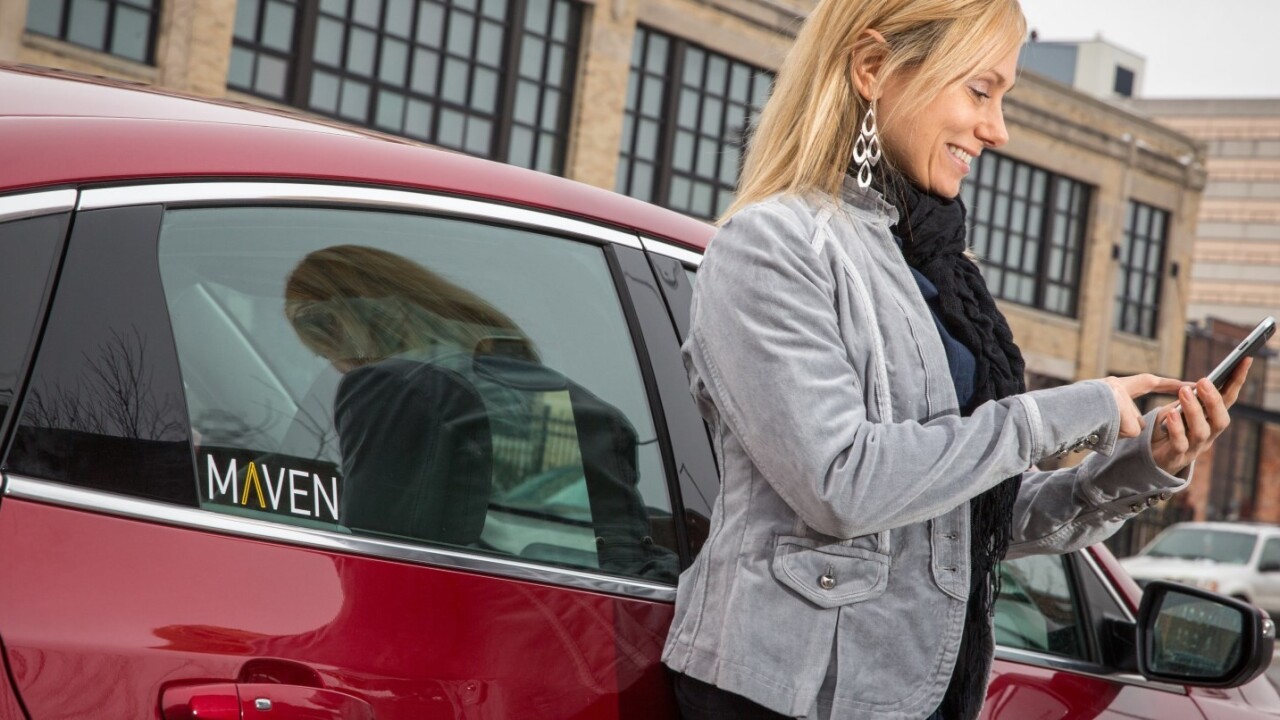
American multinational automaker General Motors is shutting down its car sharing platform, Maven, after struggling to gain a foothold in the market.
As first reported by the Verge, the company sent and email to customers stating that Maven vehicles for public use will no longer be available, effective immediately:
After critically looking at our business, the industry, and what’s going on with COVID-19, we have made the tough but necessary decision to wind down our business
[Read: This hydrogen storage ‘sponge’ could be the key to safer EV fuel cells]
Launched in 2016, GM’s Maven app allowed users to rent and drive shared vehicles in the Ann Arbor, Michigan, area from $6 per hour for small vehicles. Since then, the company expanded to cover 17 US cities.
The company said it’s gained valuable insights from the operation, and will use these to inform and develop other business areas. Presumably, the main insight is that it’s really hard to turn a profit in the ride sharing world.

GM is also pulling the plug on Maven Gig, its service targeted at gig workers for the likes of Uber and Lyft. Shuttering of this division won’t be immediate. GM is asking its Gig customers to return their vehicles when it’s safe to do so.
Under the current pressures caused by the coronavirus pandemic, GM says it doesn’t want to disrupt business for drivers who might be delivering vital supplies.
However, after the company’s CEO left the business last year, Maven scaled its operations back. Last month, it suspended its service, and with yesterday’s announcement made that move permanent. It seems coronavirus was the final straw that broke the camel’s back.
Maven isn’t the only mobility on-demand business to be hit by these uncertain times.
E-scooter businesses, Bird and Lime, have paused their services across the US and Europe as usage has dropped amid the coronavirus outbreak.
Self-driving vehicle firms, Waymo, Cruise, and Uber, have all stopped testing their autonomous vehicles amid the pandemic.
This news shouldn’t come as surprising, with significant numbers of people self-isolating, no one needs access to ride share vehicles.
Get the TNW newsletter
Get the most important tech news in your inbox each week.





